Harold’s Blog: Cary Water, Transportation Future and More
Cary, NC – This week was a busy week with lots of meetings.
Monday – Cary Water Treatment
Monday’s first meeting was with the town manager for my weekly one-on-one. Topics included downtown development, future meetings, and legal issues.
Next I chaired a meeting of CAWTF (Cary/Apex Water Treatment Facility) advisory committee to consider the fiscal year 2020 capital and operating budgets. This committee has two voting members, the mayor or manager from Apex and Cary. Cary staff made a presentation and requested an operating budget of $9,955,933 for the Jordan Lake raw water intake/pump station and associated facilities. Cary’s portion of that would be $7,666,068.
On the capital budget, staff also requested $4,750,000 of capital projects in FY 2020 and has identified another $19,396,108 of maintenance, replacement and structural/process improvement projects across FYs 2021 – 2025, and an additional $163,575,000 of maintenance, replacement and Phase 4 expansion projects in the FYs 2026 – 2040 planning horizon. It should be noted that the water treatment facility recently expanded from 40 MGD (million gallons per day) to 56 MGD. Estimates have that expansion providing us capacity for the next 15 years. However, the planning window for the next expansions should start 10 to 12 years in advance which is not far from now. The CAWTF advisory committee approved the operating and capital budgets as presented. They will now go to each council for approval.
After the CAWTF meeting I chaired a meeting of the WWPP (Western Wake Partners Policy) advisory committee to consider the fiscal year 2020 capital and operating budgets. The committee has three voting members, the mayor or manager from Apex, Cary, and Morrisville. Cary staff made a presentation and requested an operating budget of $4,644,238 for WWRWRF (Western Wake Regional Water Reclamation Facility) and associated facilities. Cary’s portion of that would be $3,128,172. On the capital budget, staff also requested $1,120,000 of projects for the FY 2020 budget year and has identified another $2,033,000 of maintenance, replacement and Phase II investigatory projects across FYs 2021 – 2025, and another $2,525,000 over the 2026-2040 planning horizon. It should be noted that the waste water facility is estimated to last us until 2045. The WWPP advisory committee approved the operating and capital budgets as presented. They will now go to the Apex, Cary, and Morrisville councils for approval.
My last meeting on Monday was with the Wake County Mayors Association. In attendance were the mayors from Cary, Fuquay Varina, Garner, Holly Springs, Knightdale, Morrisville, Rolesville, Wake Forest, and Zebulon. One of the topics discussed was the quasi-judicial process. Most of the mayors disliked this process but only Cary is actively trying to get their council out of holding these hearings. The other main topic discussed by the mayors was appointments of boards and commissions. Cary’s process includes an open period for citizens to apply, a period for council members to review and make individual recommendations, a period for each liaison to interview those with the most recommendations, a work session to hear from the liaisons and vote on the recommendations, and ratification at a regularly scheduled council meeting. Many of the other municipalities in Wake County just have the mayor appoint all committees (glad I don’t have to do that). Our meeting concluded after about two hours.
Wednesday – Transportation in 2050
Wednesday I chaired the March meeting of the CAMPO (Capital Area Metropolitan Planning Organization) executive board. This is the decision-making body of the MPO. It is comprised of 28 elected officials from member governments, as well as stakeholders from other agencies. CAMPO coordinates transportation planning in Wake County and portions of Franklin, Granville, Johnston, and Harnett counties. This month’s agenda included 2 public hearings and 3 discussion items.
The Raleigh Urbanized Area and Wake County Locally Coordinated Human Services Transportation Plan and the FY2018-2027 TIP Amendment #6 were both approved after public hearings.
The first discussion item was to receive information about NC MOVES 2050. NC MOVES2050 is NCDOT’s long-range transportation plan to help guide North Carolina’s future transportation policies and investments. To find out more see https://www.ncdot.gov/initiatives-policies/Transportation/nc-2050-plan/Pages/default.aspx. After the presentation the executive board members provided input for additional consideration. Here are some interesting facts that came out of the presentation:
- North Carolina airports contribute $52 billion in economic impact and 307,000 jobs every year.
- 94% of North Carolina’s residents live within a 30 minute drive of an airport.
- 850,000 tons of air cargo is moved by North Carolina airports each year.
- North Carolina has the 2nd largest ferry system in the nation behind Washington state.
- North Carolina’s ports support 87,700 jobs: Morehead City, Wilmington, Greensboro Inland terminal, and Charlotte Inland terminal.
- 7 million tons moved through ports in the last fiscal year worth $21.48 billion.
- 42% of people killed on NC roads in 2016 were not wearing seatbelts.
- 20% of crashes in 2016 involved a driver that was distracted.
- There are more than 800 traffic cameras and 300 dynamic message signs in NC.
- There are 4,220 highway miles in North Carolina.
- 77% of goods (over 429 million tons) were carried across North Carolina’s roads and highways by truck in 2015.
- The number of teens getting their full provisional driver’s license dropped by 5% from 2008 to 2010.
- 8% of North Carolina adults are considered obese, the 16th highest obesity rate in the country.
- The average number of annual pedestrian deaths from crashes was 176 from 2011 to 2015.
- The average number of annual bicyclist deaths from crashes was 22 from 2011 to 2015.
- 2 million tons of freight cargo is imported into North Carolina each year.
- 3 million tons of freight cargo is exported from North Carolina each year.
- 70% of the state’s population lives within a 30 mile radius of a passenger station.
The next CAMPO discussion item was to get a report on LAPP (Locally Administered Projects Program) funding that is unobligated or exposed. This is important because all exposed funding from the Congestion Mitigation and Air Quality (CMAQ) and Transportation Alternatives Program (TAP) sources are subject to rescission by the Federal Government as of September 30, 2019 – at the end of this Federal Fiscal Year. Cary has one project listed as at risk, the Higgins Greenway project. The notes for this project say “has plans approved and environmental document pending approval; Concerns about having to use condemnation in ROW (right-of-way) and impact on schedule; and Unsure about CON (construction).” The committee recommended the staff consider three additional strategies to help protect funding.
The last discussion item was to get an update on the Southwest Area Study which includes Fuqua-Varina, Angier, Apex, Holly springs, portions of unincorporated Wake County and portions of unincorporated Harnett County. The meeting concluded after about two hours.
Friday – Legislative Update
Friday morning I met with CAMPO (Capital Area Metropolitan Planning Organization) staff and officers along with DCHC (Durham, Chapel Hill, Carrboro Metropolitan Planning Organization) staff and officers and others to plan the agenda for the joint CAMPO-DCHC meeting on May 29th. We went over several topics and decided which ones should be presented to both boards for information and action. Our meeting lasted about an hour and a half.
Friday the North Carolina Metro Mayors met for the weekly legislative update. Here are the notes from the Executive Director:
Transportation
No new legislative issues – There was a presentation on Powell Bill from NC DOT in the Joint Transportation Appropriations Subcommittee this week. We’re hearing more “hallway discussion” about a possible small increase in Powel Bill funding (included in the Governor’s budget). House Chairman Torbett has suggested that it may be helpful to have Metro Mayors present to his committee on city transportation programs (including use of Powell Bill).
Public Safety
Nothing new to report.
Economic Development
H398 Growing GREAT-Rural Broadband
- Introduced this week
- Allocates $15M each year for 10 years from State Capital and Infrastructure Fund
- Seems to have more support from both chambers
H431 FIBER NC Act
- Supported by NCLM and NCACC
- Promotes public/private partnerships for access to internet
- Similar to BRIGHT Futures Act from 2017 (Passed House, but did not get a hearing in Senate)
H399 Disaster Area Building Rehab Tax Credit Bonus – Historic Preservation Rehab
- Extends sunset Historic Preservation Tax Credit for 10 more years
- Increases cap from $20M to $25M
- Includes 5% additional tax credit for eligible projects in counties that were declared a federal disaster
Local Revenues/ Local Control
S316 Affordable Housing
- Directs municipalities with a population of 90,000 or greater to report on local government funding, subsidies, and activities related to affordable housing
Other Updates
Metro Mayors Affordable Housing Project – A city senior staff level steering committee is meeting next week. Local Government Federal Credit Union (LGFCU) has committed to provide financial support for Metro Mayors for this project. The purpose is to educate local government elected officials on housing and create a common framework for policy discussion that can help moving forward the municipal perspective in housing issues at the state level. The goal is to have some results to share with Metro Mayors in late May or early June.
Saturday – Cary Dodgeball Tournament
Saturday I provided welcome remarks at the second annual Cary Dodgeball Tournament. The proceeds of this tournament go to a Town of Cary Scholarship Fund called Play it Forward. This scholarship provides underserved individuals and families in Cary with the opportunity to participate in camps, classes, and sports leagues. I was able to watch a few dodgeball matches which were competitive and also very entertaining. What a great event. Thanks to all that made this possible.
I had the pleasure of meeting Miss Cary International Maggie Mae Whitamore who was one of the dodgeball costume judges this year. She is a great young lady and will represent Cary well in the North Carolina pageant.
Town Manager’s Report
The town manager’s report for this week included the following:
World Water Day
Today is World Water Day, and the Utilities Department has marked the occasion with 2018 Water Resources in Review. This reference is a concise review of key statistics and trends relating to Cary’s water supply status, water use and utilization of our water/wastewater facilities. The Triangle experienced its highest annual rainfall on record in 2018, near-record Jordan Lake levels, and a continuing decline in per-capita water use. The report includes excerpts from the Town’s 2018 Long Range Water Resources Plan Update. Staff evaluated water use patterns and growth projections to update our forecast of when additional water and wastewater facilities would be needed. The reduced per-capita demand and trend toward fewer in-ground irrigation systems mean that existing facilities can accommodate more residential and commercial growth than previously expected, allowing some growth-related projects to be deferred to later years.
Downtown Park
With Council’s approval of the Downtown Cary Park Master Plan, the design of the park has begun in earnest. Part of that effort includes touring similar parks around the country to learn the best practices for managing an urban park. This week, Council member Don Frantz led a contingent of staff from Parks, Recreation & Cultural Resources, Transportation & Facilities, Stormwater and the Town Manager’s Office to visit the Myriad Botanical Gardens in Oklahoma City. This 17-acre park, also designed by the Office of James Burnett, has many facilities that are similar to what is proposed for the Cary park. Staff had a great tour and discussion with the Myriad Gardens staff and gained valuable insight on programming, stormwater, maintenance and operational issues.
LDO Framework
Here is our framework for updating the LDO as was discussed during the Council Staff Retreat. In preparation for the April 25th public hearing for the first phase of recommended changes, we have set aside time to review and discuss the framework at a work session immediately following the very short March 28th Council meeting.
Pedestrian Bridge and Sidewalk
The new sidewalk and pedestrian bridge between High House Road and Marquette Drive is open. This project completes the last sidewalk gap along SW Cary Parkway, connecting adjacent neighborhoods and businesses to recreational and commercial destinations. The prefabricated bridge was manufactured of self-weathering steel, providing a natural look to blend in with the adjacent Cary Parkway corridor. The self-weathering steel also provides longevity and low maintenance. The bridge crosses Crabtree Creek and a future section of the Crabtree Creek Greenway.
Rezoning Neighborhood Meeting
A Rezoning Neighborhood Meeting is scheduled for Wednesday, March 27 at 6:30 p.m. at Town Hall. Neighborhood meetings provide an opportunity for applicants to present information on new rezoning requests and receive feedback from nearby property owners prior to the formal public hearing. Staff will provide general information regarding Cary’s rezoning process. There is one case on the agenda: Downtown Rezoning (18-REZ-26) – a town-initiated request to rezone 0.41 acres located at 327 S Academy Street and 105, 109 and 113 Walnut Street to facilitate future development opportunities.
CAMPO Executive Board Update
On March 20, the CAMPO Executive Board adopted measures to save transportation dollars from a federal rescission scheduled for September 30, 2019. The Board and CAMPO staff strategized ways to protect the region’s allotment of federal transportation dollars. LAPP greenway projects are currently most at risk due to their primary funding source, but any unobligated LAPP project could be rescinded. The Board’s actions on Wednesday are good news to all jurisdictions as it provides more tools to protect regional funding. Cary staff members have developed action plans to protect Cary’s LAPP projects.
NCDOT is updating its long-term transportation plan, NC Moves 2050, and is seeking community input to guide the plan. Take a 5-10 minute survey about how transportation is changing and how North Carolina could address both the challenges and opportunities. The results will be used to identify state transportation priorities and needs.
Intersection Improvements
Work officially began at the Cary Parkway / Kildaire Farm Road intersection on Monday. Flyers were distributed to the local businesses that will experience the most impact from this project. The individuals we spoke to were very receptive to the upcoming work and glad that staff took the time to share the schedule, anticipated impacts and contact information should they have any issues or concerns. Currently, traffic control and erosion control devices are being installed.
New, decorative traffic signals at Cary Parkway and High House Road were installed and activated, completing the last major improvement at the intersection. The final inspection will take place next week.
At the Cary Parkway / Evans Road intersection, signal and ITS work are expected to be complete in two or three weeks. The thermoplastic pavement markings have been installed. Once the signal work is complete, the ADA ramps and multi-use path will be installed.
Intelligent Transportation Systems (ITS)
ITS – Intelligent Transportation Systems – is the application of technology to transportation to improve safety and efficiency for all modes of travel. As Cary develops its Smart Cities program, ITS will play a major role in improving the lives of our citizens.
Cary staff attended the ITS Carolinas Annual Meeting to discuss challenges, successes, and partnership opportunities in North and South Carolina to expand and advance ITS. Cary’s role was significant this year as staff moderated sessions, presented on Cary’s Smart and Connected Cities initiatives and participated in panel discussions. Staff learned more about the technology that will be added to our streets within the next year through Tesla demonstrations.
ITS Carolinas is an organization that brings together professionals from a variety of disciplines including transportation and traffic engineering, planning, transit, public safety, operations, network and IT, construction engineering along with product vendors, app designers, insurance companies, automobile manufacturers and even tow truck drivers. Cary staff has taken on leadership roles with ITS Carolinas and will keep us moving forward in providing the most advanced technologies to benefit our residents.
I-40/I-440/US1/US64 Interchange
NCDOT plans to re-design the I-40/I-440/US-1/US-64 Interchange to relieve congestion and address the heavy traffic volumes. Designing an interchange between two highways is not the typical roadway widening project that residents are most familiar with. There are different types of interchanges, each operating differently. NCDOT and the project’s consultant, Atkins Global, has held small focus group meetings with area stakeholders to provide information about the project. The first public meeting will be scheduled in April.
Residents are encouraged to provide comments and take a brief survey on their travel patterns in the area on the project’s community engagement website. The draft State Transportation Improvement Plan (STIP) currently has this project scheduled for right-of-way acquisition in 2023 and construction in 2024.
Let the Sun Shine
Staff attended Sunshine Day at Elon University. The seminars that staff attended were Open Data in Local Government, Transparency in NC-09, Open Records and Meeting Law Training, and the WRAL Sunshine Week Reporting Initiative.
Safe Routes to School
Cary has submitted a letter of support for Wake County’s application for the North Carolina Safe Routes to School (SRTS) Non-infrastructure Grant. The Active Routes to School Program will end on May 30, 2019 and this grant would allow funding for a county-wide program to continue with the goal of making it safer and easier for students to walk and bike to school. As a Silver Level Walk-Friendly Community and a Bronze Level Bicycle-Friendly Community, Cary understands the importance of providing safe and reliable opportunities for active transportation to help our residents get to where they live, work, and play every day. Cary schools have benefited greatly from several Safe Routes to School initiatives in Wake County over the last five years and the Town would like to see this important work continue.
Recycling Association
Bob Holden and Srijana Guilford represented Cary at the Carolina Recycling Association’s conference in Charleston, SC. Active members in both the Conference and Education and Outreach committees, they helped bring the region together to learn, plan and influence issues affecting recycling. Srijana co-facilitated the Tagging Bootcamp Session, a 2-hour workshop about engaging community, building a tagging program and incorporating enforcement.
Live from The Cary Theater
Cary Theater, in partnership with Six String Presents, successfully live streamed a concert from The Cary Theater. This live stream represents the culmination of several months of preparation and collaboration between PRCR, Marketing, and IT. Careful work by all involved has allowed us to develop this capability for this concert series without increasing our costs, and provides additional marketing for The Cary Theater and Six Strings, as well as a small amount of additional revenue from the stream. Based on the success of this weekend’s trial run, the plan is to live stream future Six String Presents Concerts at The Cary Theater and the Cary Arts Center.
Capital Budget Preparation
Department Directors and senior staff have been working since the beginning of March to review Town needs and develop the FY 2020 capital budget. Steve Brown opened the sessions by encouraging the team to think about the “why” behind the projects and initiatives being requested. Department staff challenged one another to consider alternate ways to provide services while staying true to our values and keeping Cary great, especially in light of the increasing maintenance needs for existing infrastructure. The Finance department’s budget team provided expertise and guidance, tracking the discussions and modeling various scenarios. Thoughtful small group discussion sparked questions of priority, capacity, and affordability. The team will wrap up its work in April as it digs further into the details and refines its recommendations for the FY 2020 capital improvements budget and plan.
Advisory Board Meetings
Mon, 3/25, 6:30 pm
Tall Hall Council Chambers
Wed, 3/27, 6 pm
Town Hall Conf Rm 11130
Emails From Citizens
Emails from citizens this week included:
- Kudos for the State of Cary Address video
- Request for help with GoCary and wheelchair access
- Request for traffic signal at Old Weatherstone Way and Cary Parkway and Maynard (staff said traffic signals will be installed at both intersections by the end of July. The reason they are taking that long is because of the metal mass poles that take a half year to manufacture due to an aluminum shortage.)
- An invitation to Mills Park Middle school to see a presentation about preserving Cary’s environment (staff is coordinating with the school on when I can attend)
- A question about signage and landscaping at Searstone (staff is working with them on what is in their site plan)
- Kudos for staff for promptly fixing a traffic signal malfunction
- A complaint about the ramp at Highway 64 and Tryon (this is a state ramp and these are state roads. Staff is working with them to provide information)
Next week’s activities include staff meetings, a meeting with the TAC (Triangle Aquatic Center) owner, a photo-op with one of our K-9 dogs, a meeting about a potential downtown development, a meeting about a Diwali performance this year, a neighborhood meeting on the downtown park, a regularly scheduled council meeting, a council work session, a meeting of the North Carolina metro mayors, a CERT (Community Emergency Response Team) event, a wheelchair tennis event, and a Cary-Raleigh Reality Client Appreciation event.
Get In Touch
Well, that is all for this week. My next post will be on Sunday, March 31st. Although I have Facebook and Twitter accounts those are not the best means of communications with me. Please send all Town of Cary questions or comments to Harold.Weinbrecht@townofcary.org and email personal comments to augustanat@mindspring.com.
From the blog of Cary Mayor Harold Weinbrecht. Photos courtesy of Harold Weinbrecht.



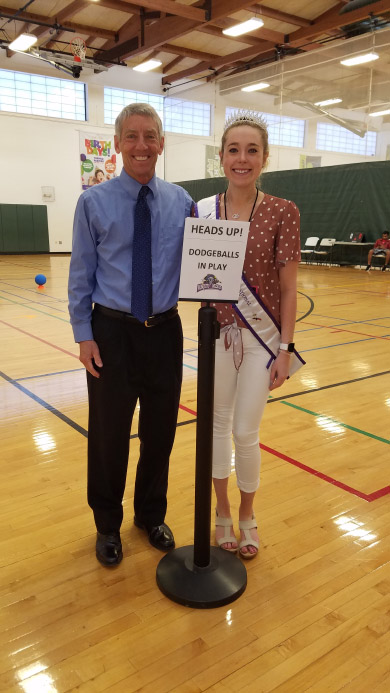
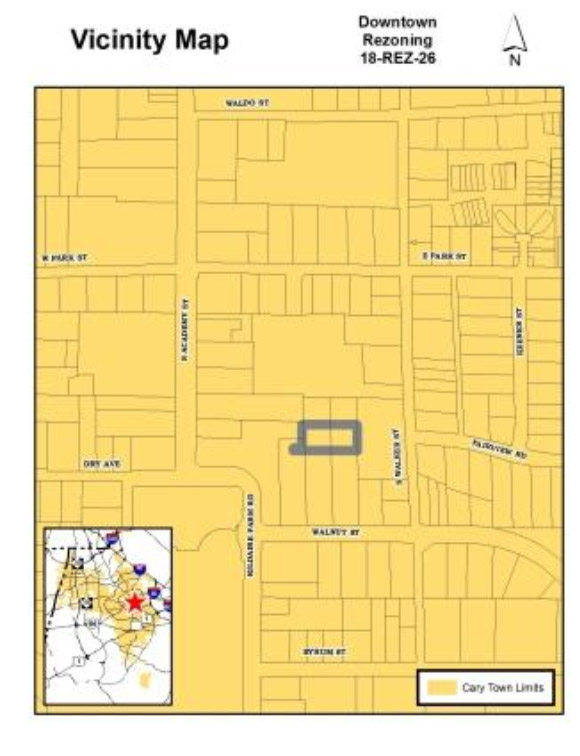
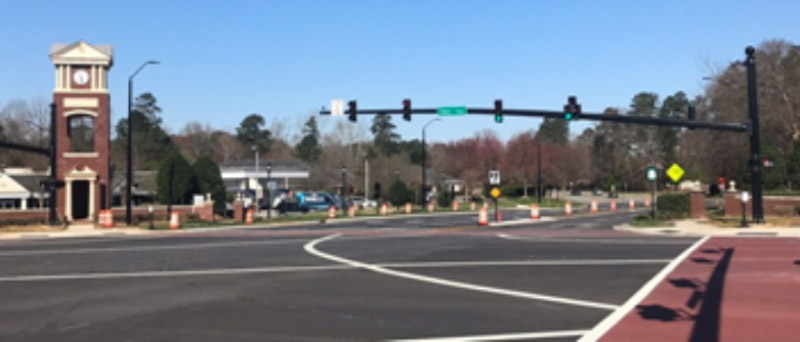
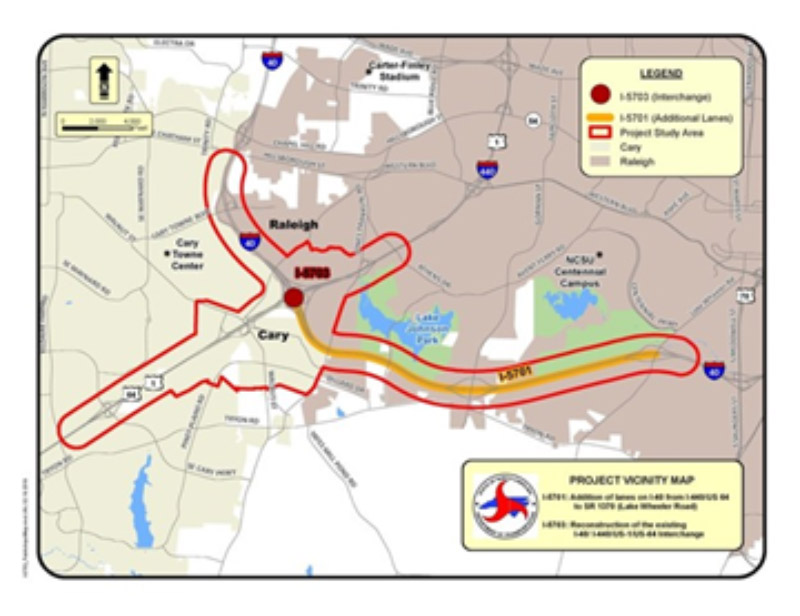
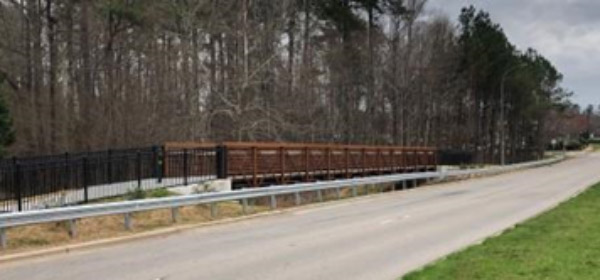


I wonder why Council and Staff had to travel to Oklahoma to look at ideas for a park.
Isn’t Cary unique? Was this a good use of taxpayer $? Didn’t we just approve a downtown park plan?
Seems like an unwise boondoggle.
“gained valuable insight on programming, stormwater, maintenance and operational issues”. This is your answer and I personally don’t disagree with it at all. While I think it would be frivolous for local governments to be doing this all the time, it’s also important for our staff to stay educated and collaborate/share ideas with other towns and projects. Sometimes this means actually going there.
There are lots of ways to gain insight about Stormwater that don’t involve a boondoggle trip. Cary is a leader in Stormwater management. Others could learn from us.
I still see no need to spend taxpayer $ on a boondoggle.
“Cary is a leader in Stormwater management.”…
Tell that to the people whose homes flood when it rains more than a few inches.
A key component of the downtown park will also be stormwater mitigation. Lessons learned from others before we build the park will help us better protect area citizen’s homes from flooding.
Aren’t just about all of those properties ones that were built before Cary started its modern stormwater management practices?
It’s always good to learn lessons from others. There are less expensive ways to do that than taking a trip.
@Brent – I disagree with you gingerly. But in this instance, I have to. The staff presentation to Council, summarizing the Stormwater Working Group’s recommendations regarding the stormwater runoff problem suggested that the Town clean clogged stormwater drain pipes. I and others listened intently to the recording of the proceeding, several times, and heard no other concrete recommendation. Did we miss something? It is a stretch to deem Cary a “leader” in stormwater-runoff management when the proposed solution is no more than a simple unclogging of pipes.
I would have hoped that we would learn more than “unclog the pipes” if people travel to Oklahoma to learn from others.
Thank you Mayor for continuing to take to time to write and post the blogs to keep us informed.
These updates are really great. Thanks for taking the time to communicate all the things going on regarding the “inner workings” of Cary and the surrounding area, things we’d otherwise have to hunt for, if we even knew they existed!